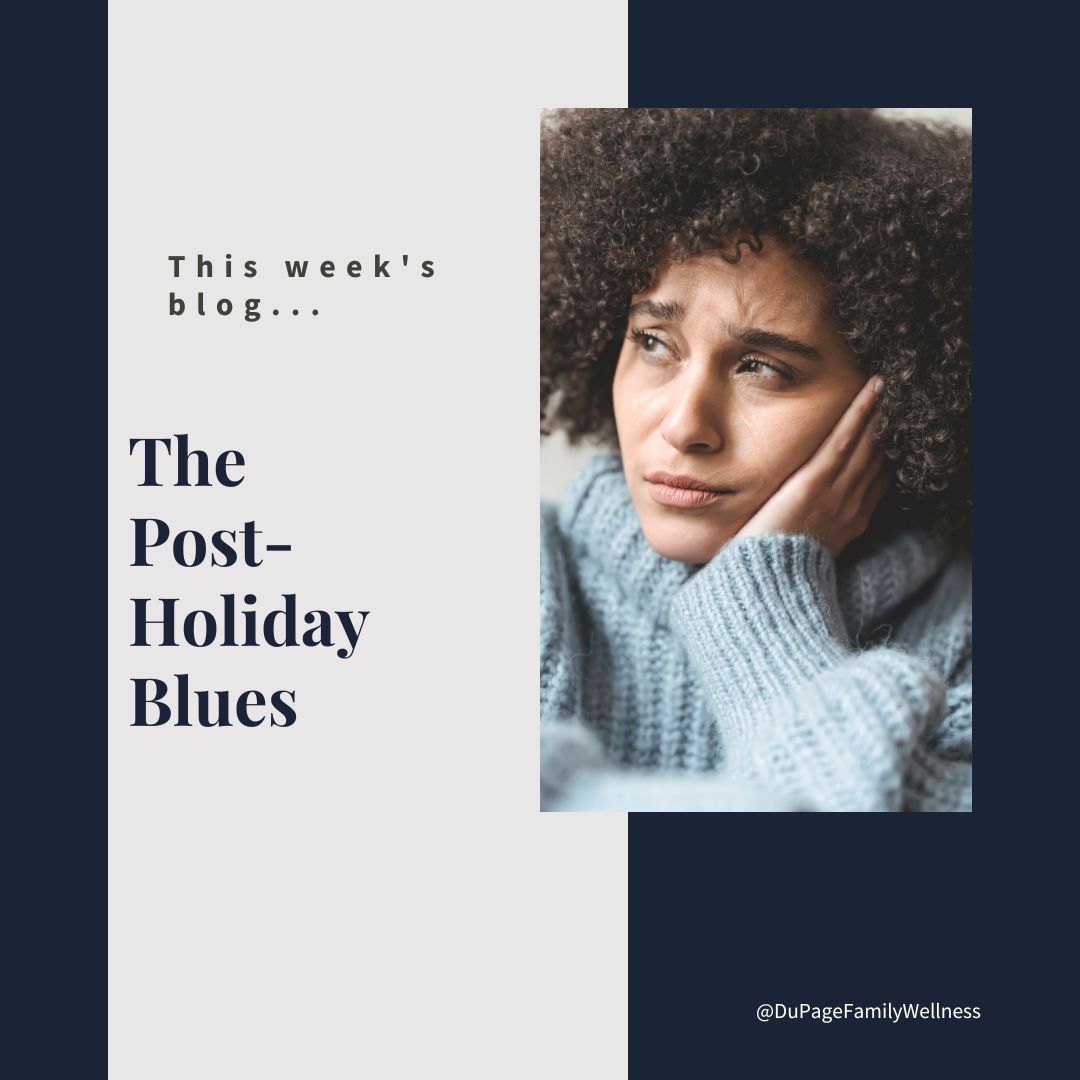 After the holidays many people struggle with the post-holiday blues. It makes perfect sense when you think about it. If you had a good holiday, it is hard to move on from the joy you felt. On the other hand, if it was a difficult holiday there may be some grief to process.
After the holidays many people struggle with the post-holiday blues. It makes perfect sense when you think about it. If you had a good holiday, it is hard to move on from the joy you felt. On the other hand, if it was a difficult holiday there may be some grief to process.
Take a minute to notice how you are feeling after the holidays. Are you struggling with depression? Is there a feeling of emptiness or loneliness? Do you understand where those feelings are coming from?
Knowing these things can help you care for yourself by making a plan for these difficult weeks. If you notice the feelings you can take a proactive approach that may lessen the intensity of these emotions
Let’s take a look at the reasons you might experience the post-holiday blues and what you can do to combat it.
Reasons You May Feel Sad
People may feel sad for a multitude of reasons during and after the holidays. Identifying what impacts you can guide your action plan. Here are some things that may be difficult for you.
- Burnout - the stress of the season can lead to burnout. When you work hard to make the holiday special you can be left feeling depleted of energy and joy.
- Family conflict - the holidays can highlight conflict in a family. Discussing certain topics at the dinner table can be risky and you may feel pressure to be around people you would otherwise avoid.
- Disappointment - there can be a sense of grief if the holidays are less than satisfying. Maybe you worked hard to make it special for others and nobody did anything special for you.
- Loneliness/Grief - being without the people you love can be especially painful during the holidays. If you have lost a loved one the holidays often amplify the grief. Not having close friends or family near you can also leave you feeling alone.
- Dread - going back to the daily grind is rough. You may have taken time off work and now it’s time to go back to the mundane.
- Anticipation - the anticipation of the holidays creates excitement. Without that to look forward to, winter can feel really long.
How to Combat It
Once you identify the underlying cause of your sadness you can figure out ways to ease it. Take these thoughts as a springboard to create an action plan that will work for you.
- Relax - the craziness of the season is over, so take some time to relax. It’s okay to do nothing after doing so much.
- Selfcare - find something that brings you life. Think about what you want to do, not what you think you should do. There is not only one right way to do self-care.
- Connection - you may have enjoyed the connections you experienced through the holidays. Make a point to continue those connections. Schedule time with friends, call loved ones, text or video call someone out of town.
- Anticipation - what can you look forward to that will bring you joy? If there isn’t already something you are anticipating, create one and put it on the schedule.
- Common experience - knowing that you aren’t alone in your difficult experience can be strangely comforting. Remember that this is a very common experience, and you are not alone in it.
- Dealing with difficult emotions - unpleasant emotions don’t disappear when we ignore them. Learning how to work through difficult emotions in a healthy way is the best way to open yourself up to positive emotions.
- Gratitude practice - feeling gratitude floods our brain with the feel-good hormone dopamine. (Check out the blog Holding on to Gratitude)
Consider Seasonal Affective Disorder (SAD)
Severe cases of “the winter blues” may be seasonal affective disorder (SAD). If you have it you are not alone; an estimated 10 million Americans have been diagnosed with it.
A thorough evaluation for SAD generally includes a physical exam, psychological evaluation, and lab work. It can be tricky to get this diagnosis because the symptoms overlap those of other mental health issues.
The good news is that treatment is available. It may include light therapy, medication, and a good therapist. Please don’t suffer alone. Talk to me at your next appointment and ask for some resources.
Let me know if you try any of these ideas or if you have some suggestions of your own. I’d love to hear them.
Dr. Jamie

